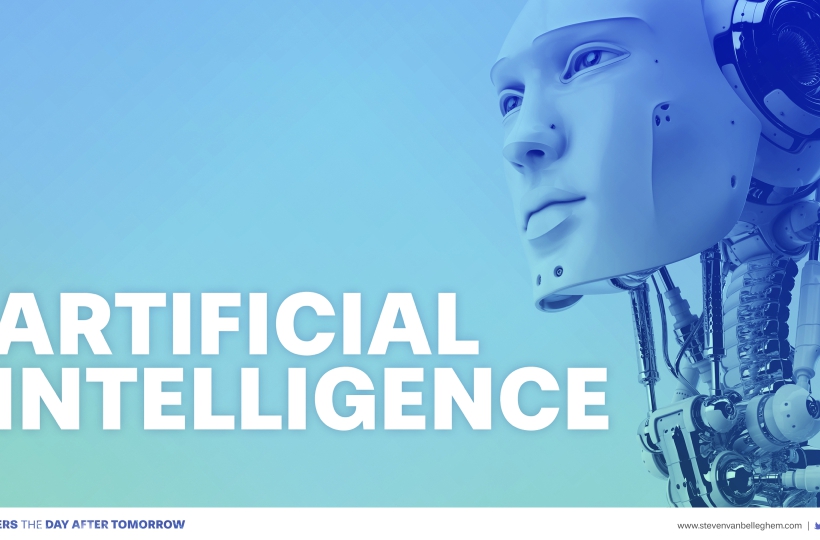5 brilliant cases of (non tech) companies using AI to boost customer experience

Macy’s – a shop assistant that’s always available
If you’re anything like me, you’ll want your shopping to be done in a fast, frictionless and efficient manner. Yet how often does it happen that there’s no shopping assistant around when you need help? So it’s really great to see that department store chain Macy’s is testing IBM Watson cognitive AI technology to help guide shoppers within their stores. Their smartphone-based assistant ‘Macy’s On Call’ answers natural language questions with relevant customised responses. Interactions can vary from where specific departments, products or brands are located, to what services and facilities can be found in a certain store.
For me, this is AI-driven customer experience at its best: a simple and convenient solution to a common problem, that allows human shop assistants to focus on the more complex questions, where they can really be of added value. The use of AI for customer experience does not have to be overly complicated. Start with small concrete problems, would be my advice.
ASOS – what you see is what you get
Another quite simple, yet very convenient example is that of UK-based e-commerce clothing retailer ASOS’ use of computer vision. If you see a movie star or influencer wear something that you really like or a designer coat in a shop that exceeds your budget, you can take or upload a photo in the ASOS app. If you do, they scan their huge database of clothes for something that is similar, and very likely more affordable.
This is how you keep your customers happy. But above all, it’s how you get them to come back and buy more. Users of ASOS’ visual search view 48% more products than other consumers and are 75% more likely to make a return visit. They even place orders that are worth 9% more.
KFC – I know what you want to eat
A more experimental example of the use of AI in customer experience is that of KFC’s collaboration with ‘China’s Google’ Baidu. They use facial recognition to predict what a customer might want to eat, based on the time (breakfast, brunch, lunch…), the estimated age, gender and mood. A 20 something male would for instance be offered “a set meal of crispy chicken hamburger, roasted chicken wings and coke”. On top of the suggestion, KFC claims that the system will remember what you ate for the next time
It’s not surprising that such an experiment is running in China. The Chinese are really big on speed, efficiency and personalization and this merger between the offline and online world, seems right up their alley. They are also a lot more comfortable with digital ordering and the use of facial recognition. The Guardian quoted one of the KFC’s customers as saying “In China, you don’t have any privacy anyway”, something you would rarely hear out here.
Volvo – no more breaking down
Another great example is Volvo’s Early Warning Systemanalyses that examines over one million events every week to predict which car parts will need to be changed, or repaired. No one knows your car better than your car knows itself, right? So imagine that you would never again need to call a tow truck because your car decided to break down, or never be in danger when your breaks decided to give up. On top of that, Volvo has also been testing cars with sensors that report on driving conditions, for instance on icy roads, and they even deliver these data to the Swedish highway authorities.
For me, this is something that goes beyond a great customer experience. It’s about the safety of the drivers and their family. It’s even about insurance, about stretching the longevity of a car and of course, about the learnings that Volvo will receive from permanently monitoring the data of their cars. It’s just another proof of the fact that cars are becoming more and more like computers on wheels.
Boxed – no need to “buy” any more
I really love this example, because it is bringing us one step closer towards fully autonomous shopping. Boxed is an American online and mobile membership-free wholesale retailer, and it created an AI tool called Smart StockUp that predicts when you are running low of the type of daily products that you regularly purchase, like toilet paper, detergent or milk.
Boxed looks at both the shopping history of individuals as well as more general re-stocking patterns to make the recommendations. It will also ask users a few questions at the start that will help them refine the predictions. After that, users will receive recommendations for “Need These Now” and “Need These Soon” products. If Boxed guessed correctly, shoppers can click to add them to their cart. The genius thing is of course that the more you buy at Boxed (instead of a competitor), the smarter the system will become and the better it will get to know your restocking patterns.
Though it’s not fully automated yet, Boxed isexperimenting in that direction with a test group of business customers: these automatically receive regular shipments of products from Boxed. This could really be the start of fully automated buying, in some sort of subscription-based commodity product model. Really curious about how this will turn out.